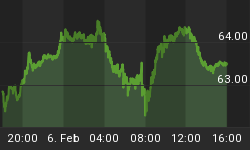Lately it has been all anyone can do not to hear talk of the U.S. real estate bubble. The term "bubble" used in connection with the housing boom has even shown up on quite a few major news magazine covers (which I suppose makes it officially a bubble).
The financial news media have even taken to openly warning that the bubble's bursting could be imminent. As contrarians, we all know that this kind of talk automatically lays down the needed support behind the proverbial "wall of worry" that in turn will prevent a collapse in the foreseeable future.
But if, as we've seen in recent months, the economy is slowing down, how will this affect the real estate market in the coming 12-18 months? A collapse is an improbability. But what about a stagnation or mild slowdown in the nationwide housing market? Is it possible that real estate will continue to expand even in the face of a liquidity-related slowdown in the economy? Let's examine some of these possibilities.
In previous commentaries we've looked at the pronounced reversal in money supply momentum that even now is beginning to impact the economy. The extremity of the rate of change slowdown in MZM since last year has always resulted in an economic softening or recession. A lessening in liquidity has an effect on all areas of economic performance, including housing and real estate. This makes it extremely unlikely the bubble will continue to expand much in the months heading into 2006. More likely is a leveling off and a mild softening of the real estate market in many regions of the country.

But a crash or severe housing recession doesn't appear likely at this point. As Donald Rowe of the Wall Street Digest summarizes, "A real estate bubble is forming, but it will not pop until after...late 2009 or early 2010." He observes further that combined consumer and mortgage debt jumped 65 percent of annual after tax income in the early 1980s to 111 percent as of the end of 2004. He writes, "A real estate recession during 2010-2011-2012 could produce alarming foreclosures, which would push real estate values dramatically lower."

This jibes well with the current plans of the central planners to engineer one final leg of the cyclical bull market between 2007-2009 before the Kress 120-year cycle crashes into the 2010-2014 time period.
Along these lines, let's take a look at U.S. demographic trends and see how they dovetail with this scenario. The entire long-term super boom in real estate was engineered primarily for the benefit of the Baby Boomer generation. As it now stands they are heading into retirement around 2010, just about the time when the 120-year cycle becomes severe to the downside. Business Week magazine in its May 16 issue did a feature story on the so-called "Safety Net Nation" that was headlined, "I want my safety net." It discusses the fears of Americans, especially the Baby Boomers, over the future of social security, the economy, pensions, etc., in light of the increased income swings and financial market volatility of the past few years.
The article further highlighted the "skimpy savings" of those approaching their retirement years. The article quotes the research findings of one Alicia Munnell of Boston College's Center for Retirement Research. According to Munnell, the average worker approaching retirement should have about $300,000 in his 401(k) based on median-wage contribution models. But according to the Business Week article the actual 401(k) savings of most Americans at this juncture is just $42,000!
So just what does this imply? That the government will have no choice but to continue boosting real estate values until the 2010 time frame approaches. Simply put, until the Baby Boomers retire en mass, the housing market will not be permitted to collapse.
As I previously alluded to, a temporary slowdown or leveling off process may take effect for real estate prices until late 2006 when the next longer-term cycle of consequence - namely, the 8-year cycle - is scheduled to bottom. Then once the 2007-2009 bull market commences real estate will likely experience its last hurrah before the bubble finally pops.















